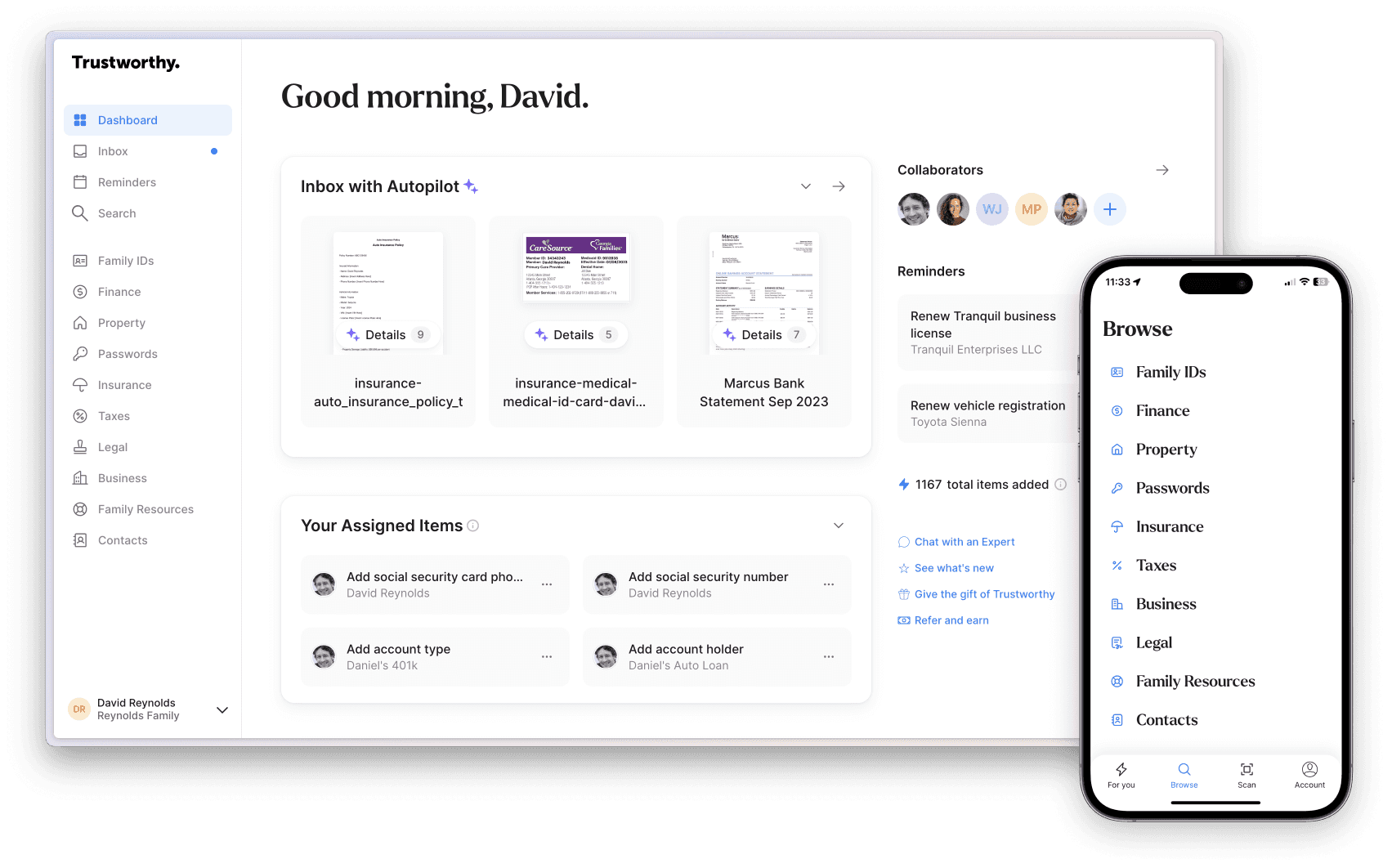About 5.7 million adults in the U.S. live with bipolar disorder, experiencing a wide range of effects, including prolonged episodes of extreme highs and lows. For those managing bipolar disorder — or loved ones supporting them — using tools designed to ease daily challenges can make a meaningful difference.
To learn more about how digital tools can be used to support people with bipolar disorder, we sat down for a Q&A session with Niloufar Esmaeilpour, founder of Lotus Therapy & Counselling Centre in the Vancouver, B.C., area.
Esmaeilpour is a registered clinical counsellor with the British Columbia Association of Clinical Counsellors and has a master’s degree in clinical psychology.
She is a fully certified therapist in EMDR (eye movement desensitization and reprocessing), a psychotherapy technique designed to help individuals process and heal from trauma or distressing memories. This method involves recalling traumatic events while engaging in guided bilateral stimulation, such as side-to-side eye movements, tapping, or auditory tones, to reduce the emotional intensity of the memory and reframe negative beliefs.
Read on to learn about Esmaeilpour’s wealth of experience working with individuals with bipolar disorder — including the motivational challenges people with bipolar disorder face, how digital tools can support them, and pro tips on how caregivers can support loved ones living with bipolar disorder.
What Motivational Challenges Do People With Bipolar Disorder Face?

Answer: Mood swings in bipolar disorder significantly impact motivation. During depressive phases, individuals often experience overwhelming fatigue, feelings of worthlessness, and a lack of interest in activities, making it difficult to initiate or sustain effort toward goals.
Conversely, during manic or hypomanic phases, individuals may feel an intense surge of motivation, often leading to impulsive decisions or overcommitment to tasks that can be unsustainable. This fluctuating pattern creates challenges in maintaining consistency in work, personal responsibilities, and overall life balance.
Another main barrier involves the unpredictability of mood changes, which interferes with long-term planning and goal setting.
Cognitive impairments, such as a decrease in memory or concentration during depressive periods, further hinder sustained motivation. Social stigma and self-doubt play a role whereby individuals may feel isolated or judged, hence reducing their drive to pursue activities.
The physical and emotional exhaustion that often accompanies bipolar disorder can make even routine tasks feel insurmountable.
Can Technology Help Manage Bipolar Disorder?

Answer: Digital tools can offer practical solutions in providing structure, reminders, and encouragement about individualized needs.
For example, applications that monitor mood patterns assist the individual in recognizing triggers and anticipating motivational shifts to plan accordingly. Tools with goal-setting features and mechanisms for positive reinforcement can break tasks down into less overwhelming steps, which is especially helpful during depressive phases.
What's more, digital platforms can link people to supportive communities or therapists, reducing feelings of isolation and stigma.
What Digital Features Can Support People With Bipolar Disorder?
Answer: Many apps incorporate features such as mood tracking, guided mindfulness, and reminders for medication or self-care routines that are crucial for mood stabilization. These tools help individuals identify patterns and create predictability in their lives.
Many apps use gamification, a system of rewards for completing a task or keeping up a streak, which brings a sense of accomplishment even on days when it feels especially hard. Being visually able to track progress spurs them to continue with the pride of small accomplishments.
How Can Digital Tools Be Used Alongside Therapies?
Answer: Technology can be a great adjunct to traditional therapies.
These applications could walk clients through thought reframing and behavioral activation exercises to practice between sessions. Medication reminders will help them maintain their prescribed treatments, which is very important in managing bipolar disorder.
Some of them allow clients to communicate with therapists, making real-time updates and adjustments in treatment possible. This hybrid model simply reinforces the efficiency of care by filling in the gaps between sessions.
How Can Individuals With Bipolar Disorder Use Digital Tools to Create Routines?
Answer: Apps featuring gentle, achievable goal-setting during depressive phases can encourage small steps toward productivity, such as reminders for basic self-care or gradual activity increases.
During manic periods, tools containing calming interventions, such as guided meditations or soothing visuals, may help balance high energy. Applications that keep track of energy expenditure and encourage scheduled breaks or rest periods will also support balance.
The trick is to select tools that adapt to where the individual currently rests in terms of mood and energy.
Are There Any Privacy Concerns Around Tools That Support Those With Bipolar Disorder?
Answer: Because mental health apps retain sensitive data, such as mood patterns, medication schedules, and therapy notes, confidentiality is a key issue.
Users must ensure that any app they use complies with regulations like HIPAA or GDPR, which demand strict standards for data protection. (Editor's note: Trustworthy meets these standards.)
Furthermore, it’s important to check the privacy policy with regard to storing, sharing, and encrypting data. Users must avoid applications that sell data to third parties or fail to provide transparent security practices.
Do You Have Real-Life Success Stories of How Technology Can Support People With Bipolar Disorder?
Answer: One of my patients used a mood-tracking and meditation app combination to manage bipolar disorder.
This way, she could track the cycles of her energy level and recognize the early signs of a manic episode with the mood tracker, while the meditation app allowed her to practice techniques to help calm down during those moments.
In due course, she related that she felt in better control over her emotions and was capable of managing daily chores in a more orderly fashion. These tools were a very great complement to her therapy and medication.
What Digital Tools Do You Recommend to Support People With Bipolar Disorder?
Answer: For mood tracking, apps like Daylio are user-friendly and insightful. For CBT-based exercises, Woebot or CBT Thought Diary can guide users through thought restructuring.
In addition, apps like Calm or Headspace provide mindfulness practices that are helpful during manic phases or moments of high stress. It is important to select applications that feel intuitive and meet the unique needs and preferences of the individual.
Caregivers can support and normalize the use of digital tools by helping the individual set them up and integrate them into daily routines. They could also offer to track progress together or discuss any insights from the apps.
It is also important for caregivers to learn about the features and limitations of these tools so they can provide an informed source of encouragement without adding additional pressure. Supporting consistency and celebrating small wins can make a big difference in sustaining motivation.
–––––––––––––––––––––––––––––––––––
Using Trustworthy to Keep Loved Ones Organized

In addition to mental health apps, it’s worth using digital organization apps capable of supporting people living with bipolar disorder.
Depressive phases of bipolar disorder can amplify a lack of interest in activities, bring on intense bouts of fatigue, memory loss, and a lack of concentration that can make it incredibly difficult to stay on top of life administration.
That’s where a platform like Trustworthy can offer a helping hand.
Trustworthy’s Family Operating System® is designed to keep individuals (and their loved ones) organized and at all times. Trustworthy enables users to upload and create digital copies of their important documents — everything from medical information and power of attorney forms to advance directives, passports, and tax returns.
From there, Trustworthy’s AI-powered Autopilot tool can support users in organizing their vault. Autopilot offers recommendations on how to name files and where to store them, and can even summarize documents. Not only does this streamline the onboarding process, but it takes a lot of strain off users who may find it daunting to implement new organizational strategies.
Trustworthy is also incredibly secure.
The platform benefits from AES 256-bit encryption, two-factor authentication, robust password recipes, and even supports physical hardware keys. You don’t even get that level of security with some banks, which means that your documents are always protected.
Trustworthy is also HIPAA compliant, GDPR compliant and compliant with the California Consumer Privacy Act, and has SOC 2 Type 2 and SOC 3 certification.
Finally, Trustworthy offers unrivaled support.
With Trustworthy, there’s always help when you need it. From a collaborative point of view, Trustworthy users can extend granular access to family members or trusted professionals so they can access key documents. That can help to lighten the load when individuals with bipolar disorder find it difficult to deal with life's day-to-day and long-term tasks.
Meanwhile, Trustworthy Certified Experts™ are available to assist users throughout the onboarding process — helping people organize their documents and offering advice.
So, are you ready to lighten the load? Check out Trustworthy’s wide range of features to discover how it can support you (or someone you love) to get organized.
We’d love to hear from you! Feel free to email us with any questions, comments, or suggestions for future article topics.
Trustworthy is an online service providing legal forms and information. We are not a law firm and do not provide legal advice.














